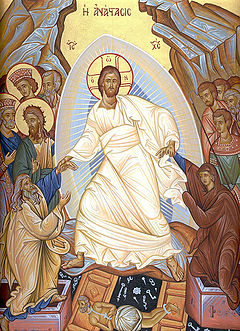guno
Gold Member
- Banned
- #1
The importance of knowing history
The name "Easter" originated with the names of an ancient Goddess and God. The Venerable Bede, (672-735 CE), a Christian scholar, first asserted in his book De Ratione Temporum that Easter was named after Eostre (a.k.a. Eastre). She was the Great Mother Goddess of the Saxon people in Northern Europe. Similarly, the "Teutonic dawn goddess of fertility [was] known variously as Ostare, Ostara, Ostern, Eostra, Eostre, Eostur, Eastra, Eastur, Austron and Ausos." 1 Her name was derived from the ancient word for spring: "eastre." Similar Goddesses were known by other names in ancient cultures around the Mediterranean, and were celebrated in the springtime. Some were:
The Pagan origins of Easter
The name "Easter" originated with the names of an ancient Goddess and God. The Venerable Bede, (672-735 CE), a Christian scholar, first asserted in his book De Ratione Temporum that Easter was named after Eostre (a.k.a. Eastre). She was the Great Mother Goddess of the Saxon people in Northern Europe. Similarly, the "Teutonic dawn goddess of fertility [was] known variously as Ostare, Ostara, Ostern, Eostra, Eostre, Eostur, Eastra, Eastur, Austron and Ausos." 1 Her name was derived from the ancient word for spring: "eastre." Similar Goddesses were known by other names in ancient cultures around the Mediterranean, and were celebrated in the springtime. Some were:
The Pagan origins of Easter


